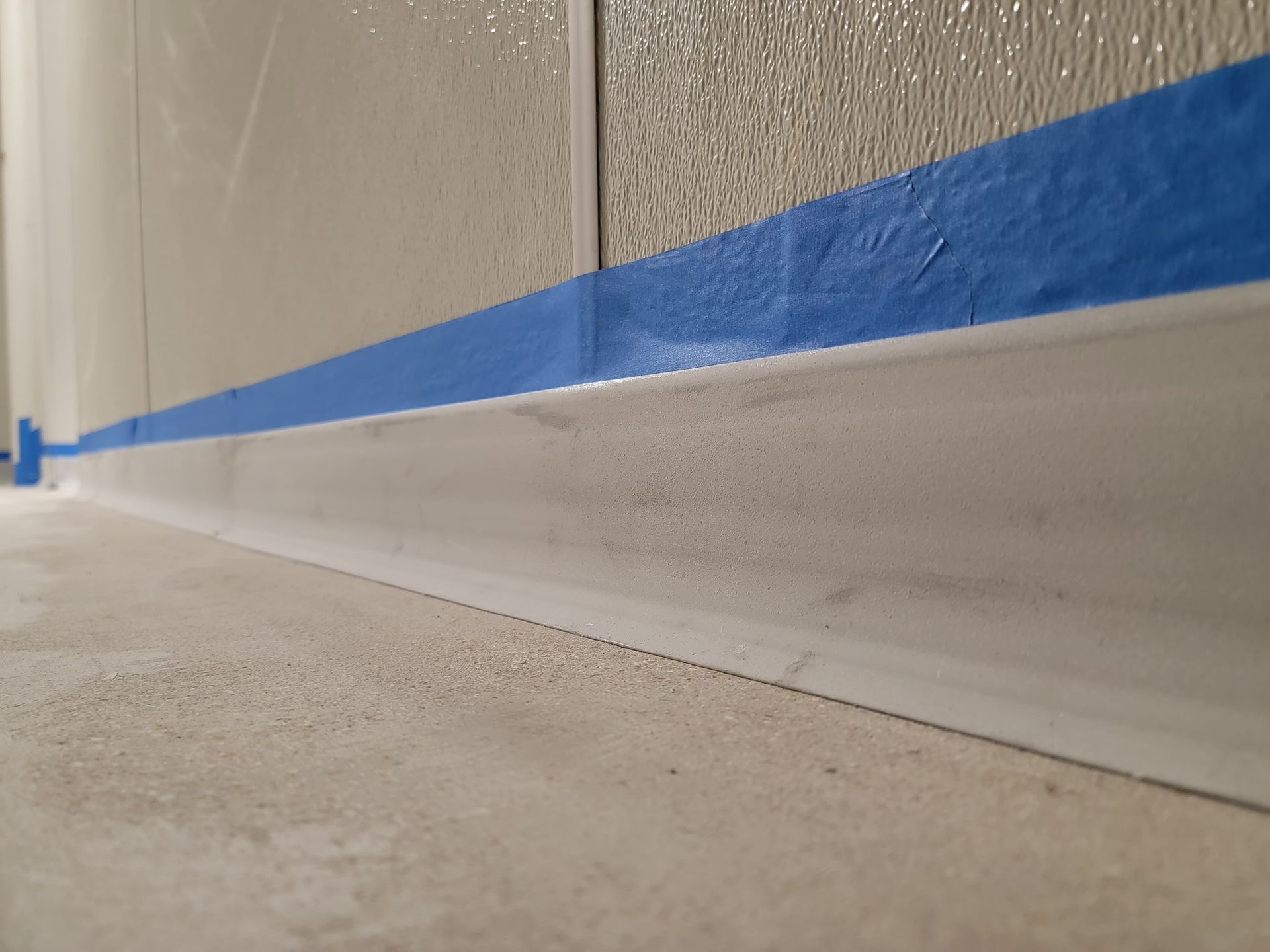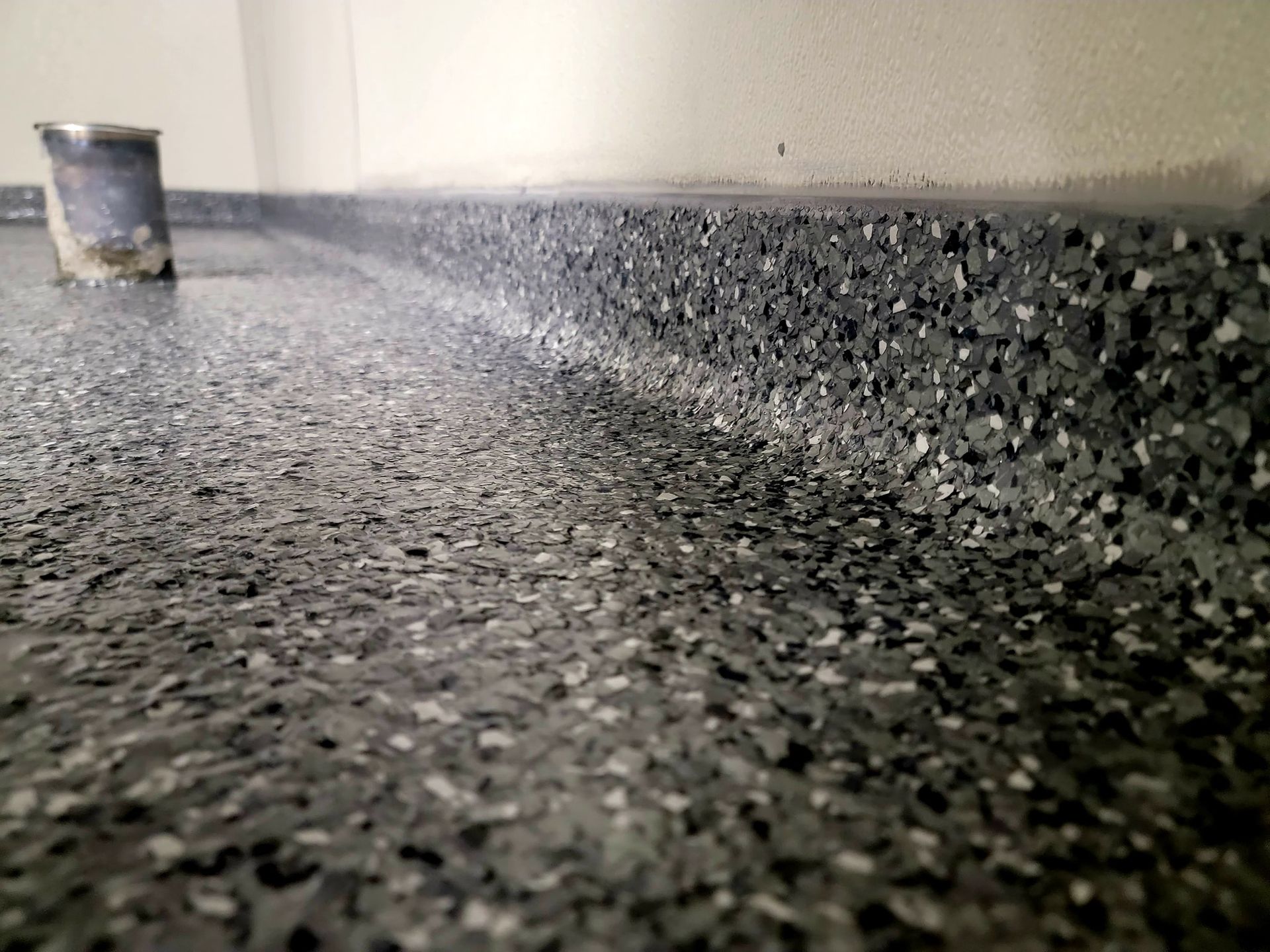Epoxy Covebase System
Get Your Quote Now
Contact Us
We will get back to you as soon as possible.
Please try again later.
Epoxy floor cove bases are essential for creating smooth, seamless transitions between floors and walls. This innovative solution is critical in environments where hygiene and cleanliness are paramount. By eliminating corners where dirt and bacteria can accumulate, epoxy coving ensures that spaces remain easy to clean and maintain. Whether in commercial kitchens, food processing plants, or pharmaceutical facilities, epoxy cove bases offer both functional and aesthetic benefits, enhancing the overall integrity and appearance of any space.
Benefits of Epoxy Floor Cove Base
Epoxy floor cove bases offer numerous advantages that make them a preferred choice in various industries. Here are some key benefits:
- Epoxy coving creates a smooth, continuous surface between the floor and the wall, eliminating hard-to-clean corners.
- By removing gaps where dirt and bacteria can gather, epoxy cove bases help maintain a cleaner environment, crucial for places like commercial kitchens and healthcare facilities.
- These coves effectively prevent water from seeping into wall-floor joints, reducing the risk of water damage and mold growth.

Types of Epoxy Floor Cove Bases
Painted-On Cove Base
Painted-on cove bases are perfect for environments where aesthetics are as crucial as functionality. They offer a sleek, seamless look that complements modern interiors, making them ideal for commercial settings such as offices and showrooms where ease of cleaning and appearance are key. Some advantages include cost-effectiveness and ease of application, providing a quick solution for enhancing cleanliness and visual appeal. However, they may not be as durable as other types in high-traffic or industrial areas.
Standard Radius Cove Base
Commonly installed at a height of 4 inches, this type of cove base is versatile and widely used in various environments. It is particularly suitable for food processing plants, commercial kitchens, and healthcare facilities where strict hygiene standards are required. The benefits include excellent protection against dirt and water ingress, making it easier to maintain a clean and sanitary environment.
Cant Cove Base
Cant cove bases are installed at a 45-degree angle, designed to prevent liquid accumulation and facilitate easy cleaning. They are perfect for industrial settings and wet areas where efficient water management is crucial. The angled design ensures that liquids drain away from the wall, reducing the risk of water damage and mold growth.
Covebase Installation Process
Installing an epoxy floor cove base requires precision and expertise to ensure a durable and seamless finish. Here’s an over simplified step-by-step guide to the process.
Surface Preparation: Begin by thoroughly cleaning the area to remove dirt, grease, and any contaminants. Use a grinder to roughen the surfaces where the cove base will be applied, ensuring better adhesion. Follow this by vacuuming to remove all dust and debris from the grinding process.
Priming: Apply a high-quality epoxy primer to the cleaned and prepared surfaces. This step is crucial for ensuring a strong bond between the floor, wall, and the cove base. Allow the primer to dry completely according to the manufacturer’s instructions.
Mixing Epoxy Mortar: Mix the epoxy resin, hardener, and aggregates according to the specified ratios. Ensure the mixture has a thick, mortar-like consistency suitable for forming the cove base.
Application of Cove Base: Using a cove trowel, apply the epoxy mortar at the junction of the floor and wall, shaping it to the desired height and radius. Smooth out the cove base to ensure a seamless and even finish, paying special attention to corners and edges to avoid gaps or imperfections.
Curing: Allow the epoxy cove base to cure fully, which can take anywhere from several hours to a few days, depending on the specific product used and environmental conditions. During curing, ensure the area is protected from dust, moisture, and traffic.
Final Inspection: Inspect the cove base for any imperfections, gaps, or uneven areas. Make necessary touch-ups to ensure a perfect finish.
While epoxy cove bases offer a durable and hygienic solution, there are other methods for installing cove bases. Vinyl and rubber cove bases are cost-effective and easier to install, making them suitable for both commercial and residential settings. Ceramic cove bases provide a high-end finish and are ideal for areas with high moisture levels. Metal cove bases offer a sleek, modern look for commercial or industrial settings, while wooden cove bases add a classic, warm aesthetic to residential or office environments. Each method has its unique benefits and is chosen based on specific requirements for aesthetics, durability, and ease of maintenance.

Applications in Various Industries
Food and Beverage Industry
Epoxy coving supports compliance with local and international hygiene standards, making it an ideal choice for food processing areas.
Pharmaceutical Industry
Epoxy is resistant to many chemicals used in pharmaceutical processes, ensuring longevity and safety.
Commercial Kitchens
The durability of epoxy withstands the heavy foot traffic and frequent cleanings typical in busy kitchen environments.
Wet and Industrial Areas
In wet and industrial areas, epoxy cove bases help contain water, preventing damage to walls and floors. These environments require robust solutions that can handle heavy machinery and constant moisture, making covebase an excellent choice.
Contact Us for Your Epoxy Cove Base Needs
If you’re considering epoxy floor cove bases for your facility, our team at Crystal Clear Epoxy is here to help. We offer expert consultation and high-quality installation services to ensure your project meets all your requirements. Contact us today for a free quote and to learn more about how we can enhance your space with durable and hygienic epoxy solutions.
Frequently Asked Covebase Questions
How Durable Are Epoxy Cove Bases?
Epoxy cove bases are highly durable and resistant to chemicals, abrasions, and impact, making them ideal for high-traffic and industrial areas.
What Is the Installation Time?
Installation time varies based on the size of the area and specific requirements but generally takes a few days, including curing time.
What are the benefits of using a cove base system?
- Enhanced cleanliness and hygiene by preventing dirt and water accumulation.
- Improved aesthetics with a smooth and seamless look.
- Protection for walls and floors from damage.
- Ease of maintenance and cleaning.
- Durability in high-traffic areas, depending on the material used.
Can cove base systems be installed over existing floors?
Yes, many cove base systems can be installed over existing floors, provided the surface is properly prepared to ensure good adhesion. This may involve cleaning, grinding, and priming the existing surface.
Can cove base systems improve indoor air quality?
Yes, by preventing the accumulation of dirt, dust, and moisture, cove base systems can help maintain a cleaner environment, potentially improving indoor air quality.
We provide durable epoxy and polyaspartic flooring for garages, basements, warehouses, and commercial spaces. Serving Toronto, Vaughan, Mississauga, Markham, and beyond, we ensure fast, high-quality installations.
Epoxy Services
Contact us
Business Hours
- Mon - Sun
- -
Google Reviews
Edit Google Reviews Widget
Call
+1 647 955 6885@ 2025 All Rights Reserved || Crystal Clear Epoxy Inc
